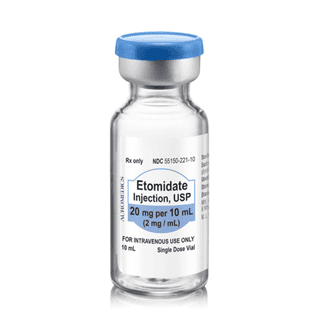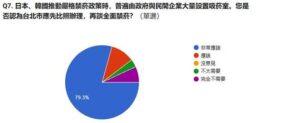Japanese Media Points to Taiwan for Etomidate Vapes – Wang Yu-Yang: Wrong Policy to Blame

日媒點名台灣依托咪酯電子菸亂象國際化,世衛菸草減害專家王郁揚呼籲參考美國總統川普經驗,抽稅納管電子菸,保護國人健康。圖:臺南市政府衛生局。
Taiwan’s complete ban on e-cigarettes has triggered an out-of-control underground market problem, which has recently been highlighted by Japanese media. According to the latest reports, a new type of e-cigarette containing the anesthetic drug ingredient Etomidate is suspected to have flowed from Taiwan to Japan and Southeast Asian countries, creating a cross-border drug crisis.
WHO tobacco harm reduction expert Wang Yu-Yang warned that this crisis is the direct result of misguided policies, calling it a repeat of Taiwan’s other governance failures such as rampant fraud and pedestrian safety issues. He urged Taiwan’s Democratic Progressive Party (DPP) government to learn from U.S. President Donald Trump’s experience by immediately establishing a system to tax and regulate e-cigarettes, in order to fix the chaos in the black market and protect public health.
Total Ban Backfires, Spawning a Schedule II Narcotic
On January 12, 2023, the DPP government passed amendments to the Tobacco Hazards Prevention Act, completely prohibiting the manufacture, import, and sale of e-cigarette products.
What was originally intended to curb youth smoking instead caused severe underground market chaos in less than two years.
Wang Yu-Yang explained that there is a clear timeline for how the etomidate problem evolved:
“These products first appeared in China, where they were commonly known as ‘high e-cigarettes.’
Later, similar products emerged in Hong Kong under the name ‘space oil.’
After Taiwan’s full ban on nicotine e-cigarettes, some local producers who had been legally manufacturing vape liquids shifted to producing etomidate liquids, which at the time were unregulated and extremely profitable.”
In 2024, a shocking incident occurred when a driver, after inhaling etomidate, lost control and killed a traffic police officer. This prompted the government to escalate etomidate from a regulated medical drug to a Schedule III narcotic, and then further to a Schedule II narcotic.
However, as penalties increased, black market prices surged. Demand remained high, pushing the trade deeper underground and making enforcement even harder.
Japan and Singapore Hit Hard
In July 2025, Okinawa police in Japan seized a large amount of etomidate-containing vape liquids and arrested several underage users.
Japanese weekly media Shūkan Playboy News reported that these products were likely smuggled into Japan by Taiwanese gangs, warning that “this is a cross-border drug storm.”
Soon after, in August 2025, Singapore’s Health Sciences Authority announced that etomidate would be classified as a Class C controlled drug, with strict enforcement starting in September.
According to Singapore’s new law, selling or importing etomidate-containing vape liquids can result in up to 20 years in prison and caning.
Singaporean media bluntly stated, “This crisis is not just a domestic problem, but the result of a regional, cross-border criminal network.”
Beyond Japan and Singapore, Indonesia and Thailand have also reported detecting etomidate in their markets, indicating that the problem originating in Taiwan has now spread across Asia.
Wang Yu-Yang: Taiwan’s Wrong Policy Opened Pandora’s Box
Wang analyzed that the root cause lies in Taiwan’s government completely banning legal nicotine e-cigarettes, creating a dangerous policy gap.
“When the government imposed an outright ban, it left a huge black market vacuum.
Formerly legitimate vape liquid manufacturers, in order to survive, switched to producing etomidate liquids, which were even more profitable and faced looser regulations.
This turned Taiwan into the starting point for Asia’s etomidate supply chain, accelerating its spread across the region.”
He emphasized that outright bans only lead to the rise of new illegal drugs, similar to the U.S. experience with Prohibition.
“Total prohibition” often results in:
- Expansion of the illegal market
- Loss of government tax revenue
- Increased exposure and risk to young people
- Ultimately, complete loss of control
Call for Legalization, Regulation, and Taxation
Currently, countries like the United Kingdom, New Zealand, and the United States manage e-cigarettes through a “legalize, tax, regulate” model.
This system:
- Restricts youth access
- Creates tax revenue for public health funds
- Allows effective monitoring of product quality
Wang urged Taiwan to follow this international trend and reform its current policies by:
- Establishing a legal market so the government can track production and distribution.
- Setting quality standards to eliminate harmful black-market products.
- Implementing dedicated taxes to fund tobacco harm prevention and addiction treatment services.
- Strengthening education and outreach to raise awareness among youth and vulnerable populations.
He warned that without policy changes, etomidate will only be the first of many new drugs to exploit Taiwan’s policy loopholes, turning the country into a breeding ground for drug and vaping crises in Asia.
Further Reading:
- Behind the scenes: Taiwan gangs suspected as “zombie drug” abuse spreads in Okinawa
- Zombie vape quietly invades Okinawa; Japanese media: Possibly linked to Taiwanese gangs
- Space Oil crisis spreads beyond Hong Kong to Singapore
- BBC: Caning and fines for Singapore’s crackdown on drug-laced vapes
- The Guardian: Rise of drug-laced vapes worries Singapore
- Taipei Times: Zombie vape usage skyrockets 58-fold





